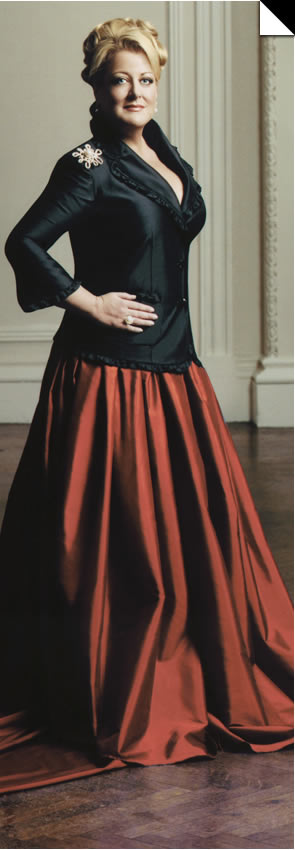Lustrous mix of music by SF Symphony
In a concert of Strauss, Knudsen, Barber and Beethoven at San Francisco’s Davies Symphony Hall last Saturday, Beethoven was the clear winner. Michael Tilson Thomas set aside the score and threw himself into the conducting with a palpable directness that illuminated each musical strand.
Soprano Deborah Voight came in a close second with her deeply felt reading of Barber’s Andromache’s Farewell. She was buoyed by clean strings and Barber’s emotionally direct scoring of the Greek tragedy, a translation from Euripedes’ Trojan Women.
The program opened with Scottish composer Oliver Knussen’s Symphony No 3. Inspired by Shakespeare’s Ophelia, this modern composition was remarkably dense and filled with restless urgency. Volleys of high clarinets and horns over string tremolos created a state of rising anxiety, as unrelenting as Ophelia’s madness and suicide. The resolution and slow shimmering chords that followed were a relief, the cool clear textures of her watery surcease.
Voight followed with Richard Strauss’ Vier letze Lieder (Four Last Songs) composed shortly before his death in 1949. Building on Wagner’s lush chords, he evoked a sweet melancholy, his farewell to the world. These songs for soprano and orchestra, written a century after the golden age of German lieder, are the stuff of nostalgic neoromanticism, but without the morbid edge that crept into late-nineteenth-century poetry. Set to poems by Herman Hesse and Josef von Eichendorff, the songs display a fine crafting that ignores world wars, revolution, and holocaust—and are Strauss’ answer to the life and death around him. Avoiding any hint of modern serialism, he built his tone poems with an alluring serenity. Many artists, including Elisabeth Schwarzkopf, Jessye Norman and Renée Fleming, were inspired to record them, as did Deborah Voight with the New York Philharmonic.
The vocal line is meant to soar over the orchestra, but Thomas’ loose reins forced Voight to strain to be heard, an imbalance that may have contributed to an uneven performance. Her fluid leaps in the second piece, “September,” were particularly lovely, and the long pianissimo finish was simply breath-taking. The orchestra, a touch too lush and dreamy, had several sloppy entrances, quite unusual for this fine orchestra, but promptly remedied that in the Barber.
Galvanized by Thomas’ incisive conducting of the Barber, the orchestra rose to an energetic and careful support for Voight. Replacing the condensed milk of German vowels with the brasher diphthongs of English, and changing regret to grief, Voight was forceful and believable as a conquered Trojan mother whose young son is to die.
Beethoven’s Fourth Symphony was a great close to the evening. Performed less often than his other symphonies, it contains a lightness and hopeful quality that balanced its majesty (it is, after all, Beethoven!). Michael Tilson Thomas’ intimate control of the dynamics and phrasing turned a great classical piece into a riveting experience.
This season at the SF Symphony promises excitement, with Mahler and Messiaen later this month. For a calendar, check www.sfsymphony.org.
—Adam Broner
This article originally appeared in the Piedmont Post
